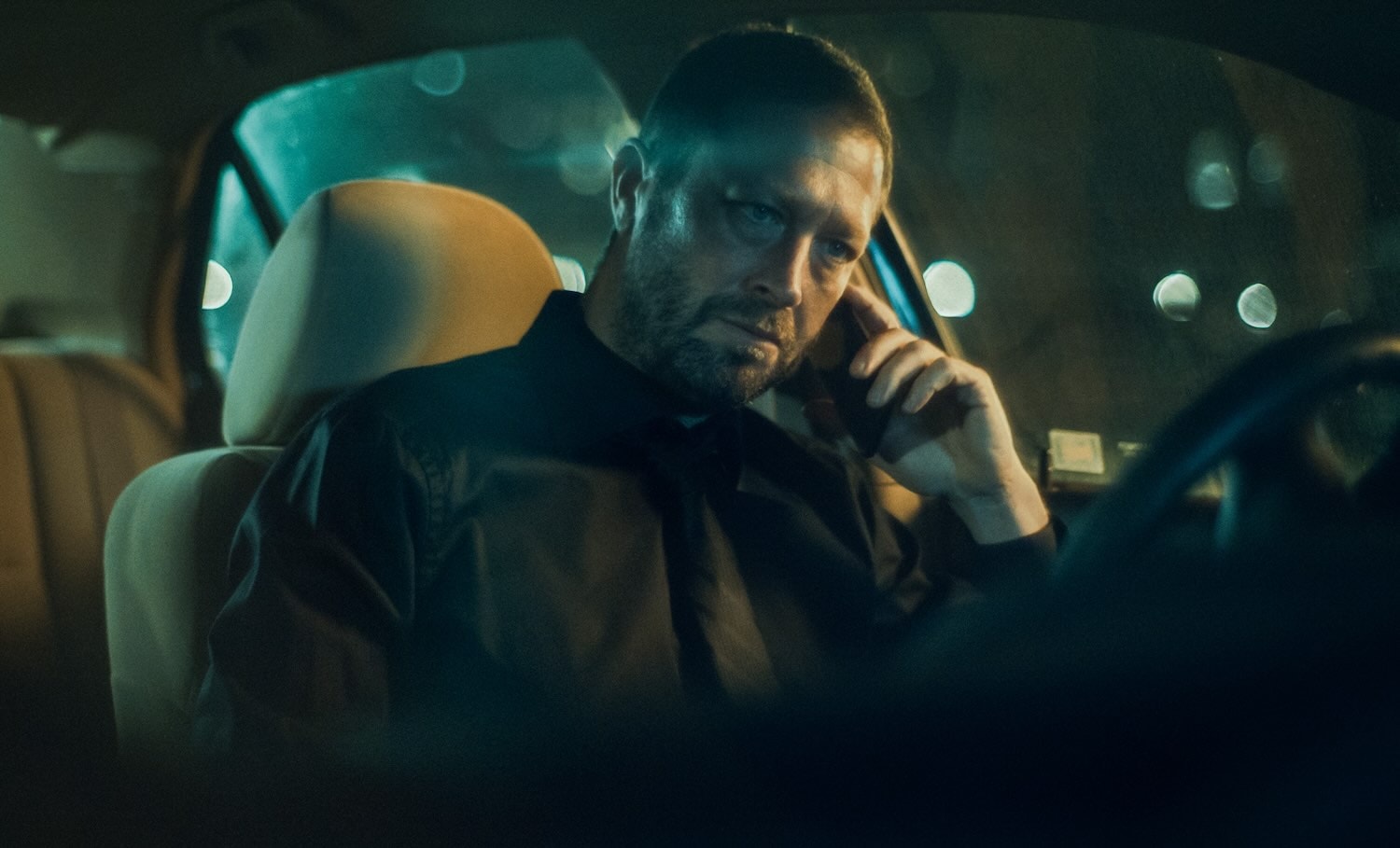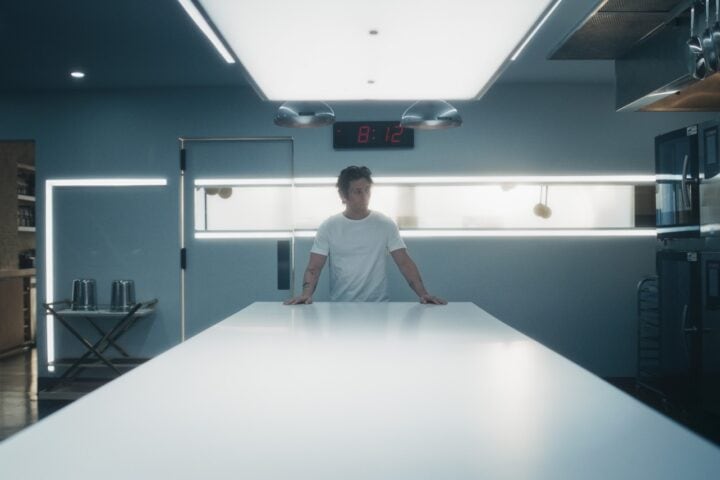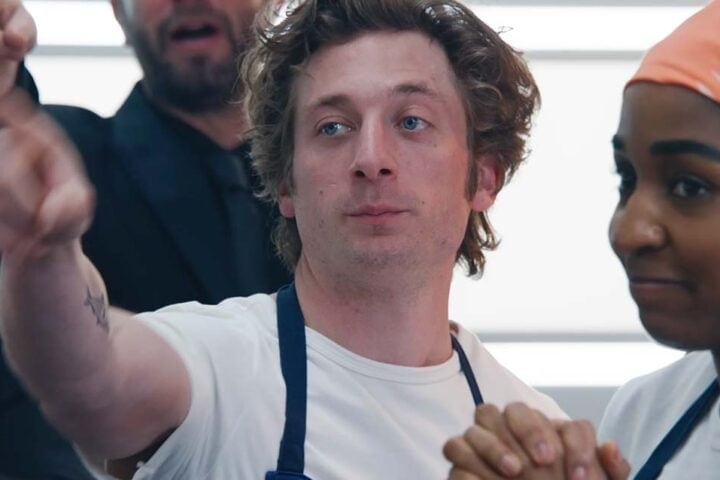The first episode of The Bear’s third season immediately sets the tone for what will follow, weaving together a few brief looks at the aftermath of the disastrous opening night of Carmine Berzatto’s (Jeremy Allen-White) new fine-dining restaurant. The episode, “Tomorrow,” strikes a meditative note as Carmine tries to recenter himself, standing in contrast to the show’s characteristic orchestration of grease-splattered shouting matches. This 35-minute stream-of-conscious montage seemingly suggests that the ambitious and irascible young chef should focus a bit more on the people who’ve helped shape him.
On the other side of this opportunity for reconsideration, though, Carmine seems to mostly reach the wrong conclusions. In episode two, “Next,” he imposes the policy that the menu will change every day, against the advice of his sous chef, Sydney (Ayo Edebiri), his matre d’ and cousin, Richie (Ebon Moss-Bachrach), and his general manager and sister, Natalie (Abby Elliott). This decision, along with Carmine’s other quirks of merciless perfectionism, threaten to ruin the finances of The Bear and further alienate the people around him.
Whether the restaurant will survive long enough to make it into a fourth season is one of the main questions of the season’s overarching plot, but it’s one that the self-blindered Carmine, desperate for a Michelin star, seems blissfully unaware of. While he single-mindedly focuses on the idiosyncratic “non-negotiables” that he demands his staff to operate by, the series also explores the other figures struggling to stand the heat in the kitchen: Marcus (Lionel Boyce) deals with the recent death of his mother, and the Fak brothers (Matty Matheson and Ricky Staffieri), stalwart family friends and reliable comic relief, cope with being “haunted” by their cousin Sammy (John Cena, dipping in for an enjoyable one-episode cameo).
Particularly affecting is the Edebiri-directed sixth episode, “Napkins,” which serves as an origin story for Tina (Liza Colón-Zayas). It flashes back to her heartbreaking Chicago-wide search for a job after losing the one she had managing payroll at a confectionery company. Her search eventually lands her in the empty dining area of The Beef, commiserating over life’s difficulty with Carmine’s older brother Michael (Jon Bernthal). Tina and Michael prove surprising kindred spirits, each overwhelmed by the stress and love their families can’t help but deliver in tandem, and Colón-Zayas matches Bernthal’s hardened-soft-guy energy.
The next episode, “Legacy,” underlines the season’s theme that delicate arrangements of, say, porkchop and brussels sprouts aren’t the only thing put together in a kitchen. The potluck community that forms in a well-run kitchen goes on to spread that culture as individuals move on to new places. It’s what Carmine did at one point and, as part of the second major plot development of the season, something that Sydney may need to hear. Bristling at the constant tension of a Berzatto-dominated dining establishment and clearly feeling like her maturing culinary skills find little recognition, she’s ruminating on whether it’s worth committing to becoming a partner in the business, or whether she’d be better striking out on her own.
With its expansive and expanding cast and its increasing inclination toward impressionistic montages of characters’ inner lives, The Bear expresses wonder at the way a diverse group of elements, people, and emotions come together to form a barely functioning machine. It’s a series about community but also art, the efforts and the stories that lie behind human creation.
One gets the sense that series creator Christopher Storer, who directed nine of season’s 10 episodes, sees montage, shot selection, and narrative structure as analogous with the dexterous constructions of fine cuisine. Storer proves happy to confirm this suspicion by opening episode nine, “Apologies,” with a montage of iconic cinematic moments from the silent era and a clip from Deceptive Practices: The Mysteries and Mentors of Ricky Jay. “Magic, at its best, has to be spontaneous,” says Jay in the clip. It seems that Marcus, diving into his work as a cakemaker after his mother’s death, is investigating the concept of legerdemain, or performative sleight of hand, and how it links together magic, cinema, and cooking.
The season’s ability to languish in such philosophical explorations is one advantage bought by its forwarding of vibes over plot, though its finale, “Forever,” ends up putting too fine a point on things. That restaurants are about the people and not about the food per se—food is a catalyst of relations, a medium for conversational moods—is a thesis statement that the episode goes a bit too far out of its way to express. Storer’s gathering of actual well-known chefs who sit around with our fictional characters and pontificate on the meaning of food can’t help but reduce something that felt profound when articulated through form into mere manager-speak.
By the end, many of the questions of season two remain, particularly the types that one might expect a TV dramedy to rush to answer: the resolution of ongoing conflicts and the will-they-won’t-they of a romance. In the end, though, it hardly matters, as Storer has managed to keep the center of interest away from such plot-driven considerations. In television as in dining, perhaps achieving a memorable flavor is at least as important as immediate satiation.
Since 2001, we've brought you uncompromising, candid takes on the world of film, music, television, video games, theater, and more. Independently owned and operated publications like Slant have been hit hard in recent years, but we’re committed to keeping our content free and accessible—meaning no paywalls or fees.
If you like what we do, please consider subscribing to our Patreon or making a donation.





